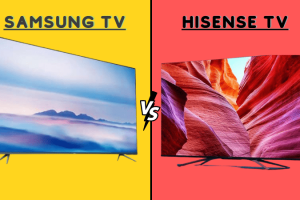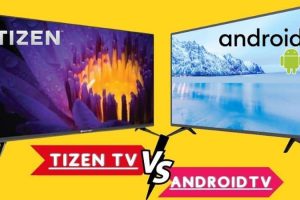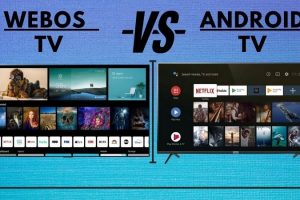Can you put a regular TV outside? Or can you use an indoor TV in the outdoor space, even leaving it outside in the winter? These are some of the questions that we are often asked when our team goes for a mounting job. We understand that you intend to use your expensive investment for years and don’t want to leave it unprotected in the inhospitable outdoor condition. Considerations like direct sunlight and using a proper TV cover are essential to protect your TV and enjoy it in your outdoor space.
We’ve got all the solutions and answers for you in this blog. We have mounted thousands of TVs outside and have hands-on experience in dealing with this issue.
This blog will cover:
- Can you put a regular TV outside?
- Indoor vs outdoor TV Comparison
- Will the cold weather of winter damage TV
- Temperature ranges for conventional & plasma TVs.
- How cold weather can damage the TV.
Can you put a regular TV outside?
No, you cannot keep a new TV, especially a regular TV, outdoors without protection from rain, dust, and wind. A standard TV should not be used outdoors, or specifically, use an indoor TV outside, unless it is fully protected with some form of weatherproof outdoor TV enclosures, even if it is well located out of direct rain or under a covered patio. There are numerous weather and environmental risks to consider, such as rain, mist, or dust.
If you keep a conventional TV outside you will eventually burn it or break it. Even if the TV is protected by an overhang; weather, humidity, and other elements will harm the internal components and violate most manufacturers’ warranties.
Indoor televisions, including 4K models, are ideally suited for climate-controlled environments and home theater setups, while some of the best outdoor TVs are designed to withstand harsh temperatures. So for outdoors, look for a television that is waterproof, glare-resistant, and has a multi-fan ventilation system to keep the internal components cool, even when the temperature outside exceeds 100 degrees. Utilizing a proper wall mount can further enhance the outdoor viewing experience.
Also look for television with integrated heaters that will not be damaged when the temperature drops into the single digits.
Outdoor TVs Vs Indoor TVs: Comparison
What is the difference between an outdoor and an indoor television? The short answers to both queries are that there is a significant difference between outdoor and indoor televisions, and NO, you should not use an indoor television outside.
Here are two reasons to spend the additional money on a TV designed specifically for your outside space:
- They have specific screens that can be seen in bright light from the outside. Because natural, outside light is substantially brighter than interior light, outdoor television screens must be brighter and more powerful than those designed for indoor usage.
- Outdoor televisions are all built to endure the weather. These TVs are water-resistant and built to withstand pollen and harsh temperatures. With this in mind, weatherproofing your outdoor television during the hottest and coldest months of the year is still a good idea. You’ll be glad you took the extra step because it will extend the life of your system.
Though it may seem appealing to save money up front and buy a well-made indoor TV for your outdoor patio, you will really lose money in the long run. Get what you need: a TV created expressly for the outdoors, if you want to get your money’s worth. You can get the most out of your television by putting it in the ideal spot and taking proper care of it.
In cold temperatures, the liquid crystal fluid, like all other fluids, can freeze. To prevent the liquid crystal fluid from freezing, maintain your LCD in a temperature range of 40 degrees to 100 degrees Fahrenheit. In colder weather, you can still store the television, but there are some guidelines to follow.
Can you leave a TV outside in the winter? Will Cold Damage It?
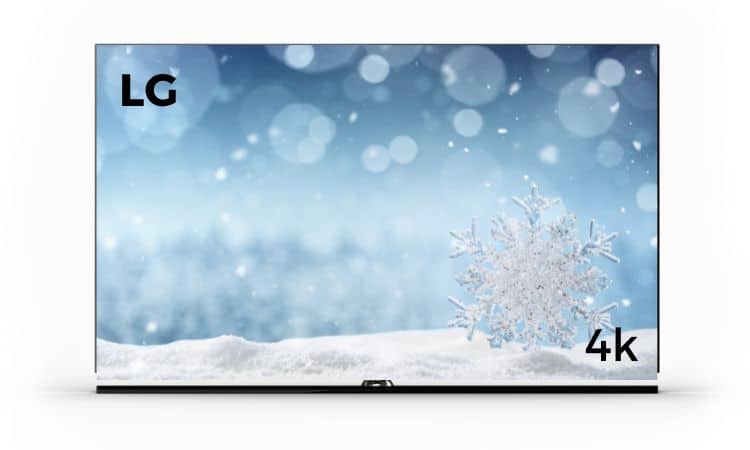
Yes, cold weather can damage a regular cheap TV if kept outside, particularly on a terrace where glare from the sun might be an issue. Let’s say you’ve left your TV out in the cold for a while. The battery will eventually run out, and the LCD/LED screen, if not equipped with anti-glare technology like SunBrite, will begin to malfunction, if not completely fail. After all, in the cold, any electrical battery quickly depletes. TVs are known to incur damage and become pixelated if they are left outside in the cold.
The more your smart appliance’s temperature falls below freezing, the more probable your panels and monitors will stop working. The appliance, after being exposed to the cold tends to collect moisture when it is quickly warmed. So before asking the question “Can you leave a TV outside in the winter?” realize that it will definitely damage your TV.
On the other hand, until the temperature drops below freezing, plasma televisions are unaffected by cold. Cold has no effect on a plasma television, allowing it to be transported and stored in sub-zero temperatures.
How cold is too cold for a TV outside?
It would be hard to say how cold will be ‘too cold’ for a TV outside but here are some facts and figures that can give substantial meaning to this. Most TV manufacturers recommend an operating outdoor TV temperature range of 40°F to 100°F (4°C to 37°C) and a relative humidity level of 80 percent or less.
Samsung advises avoiding keeping LCD televisions at outdoor TV temperature ranges below -20 degrees Celsius (-4 degrees Fahrenheit) or above 45 degrees Celsius (113 degrees Fahrenheit) (113 Fahrenheit).
To avoid freezing the liquid crystal fluid, it’s preferable to keep your LCD between 40 and 100 degrees Fahrenheit. LCD televisions should never be kept below 20 degrees Fahrenheit.
Can you store plasma TV in the cold?
With the plasma TV, if you ask “Can you leave a TV outside in the winter?” then the answer is yes, you can store a plasma TV in the cold.
The operating temperature range for Samsung Plasma TVs is 50°F to 104°F (10°C to 40°C). I do not recommend mounting your TVs in areas where temperatures outside of the operating range (50° F to 104° F) are a problem, as temperatures outside of this range can harm the TV and prevent normal operation.
Plasma TVs perform well in the cold and may withstand temperatures below freezing better than other LED models of comparable price and quality. Consult the TV’s handbook to learn about the right storage and handling procedures for getting the most out of your TV, regardless of the weather
Can You Leave a TV in Garage?
The answer is yes, and no; depending on the air conditioning and heating system of the garage. If you are wondering if can you leave a TV in a cold garage then the answer is no, not without a heater.
The temperature in your garage should not vary significantly over the course of a day, and the air is dryer in the winter, so you should be OK when you turn on the heater. However, if you do not have a heater in your garage and it is very cold there then it is definitely a bad idea to store your television there.
Tips For installing Regular tv Outside
If you’re considering installing a regular indoor TV outside, there are several important tips to keep in mind to ensure the best experience while avoiding potential hazards.
Choose the Right TV: While indoor TVs can be used outside, it’s important to note that they are not designed for outdoor use. Consider using a Roku TV, which has features suitable for outdoor viewing.
TV Enclosure: To protect your TV from the elements, consider placing it inside a dedicated TV enclosure. This will shield it from rain, direct sun, and extreme temperatures.
Read the TV Manual: Before installing the TV, carefully review the manufacturer’s instructions. Pay attention to warnings about outdoor use and recommended operating conditions.
Mounting: Properly install the TV onto a sturdy outdoor mount. Ensure it’s secured well to prevent accidents caused by wind or movement.
Consider Temperature: Extreme temperatures can damage internal components. Heat can cause expansion and contraction, while cold temperatures might impact the TV’s performance. Seek an enclosure that provides some insulation.
Outdoor-Rated TV: If possible, invest in an outdoor-specific TV designed to withstand weather conditions. These TVs are built to withstand extreme temperature fluctuations and exposure to the elements.
Ambient Lighting: Bright sunlight can wash out the screen. Choose a shaded area, use an awning, or install the TV under a covered porch or gazebo for better viewing.
Humidity and Moisture: High humidity can damage electronic devices. Ensure the enclosure is well-sealed to prevent moisture from getting inside.
Extension Cord: If you need to run power to the TV, use an outdoor-rated extension cord and make sure it’s properly grounded to prevent electrical hazards.
Protection from Theft: Install the TV in a location that deters theft. Consider security measures like locks or camera surveillance.
Consult a Professional: If you’re not tech-savvy, consider seeking help from a licensed electrician or a professional installer to ensure proper wiring and safety.
Outdoor Movie Night: If you want to create an outdoor movie night experience, consider investing in a dedicated great outdoor projector and screen. These are designed for outdoor use and provide a better viewing experience.
Remember that while these tips can help protect your TV and enhance your outdoor entertainment, using indoor TVs outside does come with risks. Outdoor-rated TVs are specifically designed to withstand the elements and provide the best picture quality. If you’re looking to spend a lot of time enjoying the great outdoors, investing in a purpose-built outdoor TV is still the best choice for a lasting and high-quality experience.
Final verdict
Here’s the breakdown of the whole blog for you.
The temperature range over which television may be stored is generally greater than the temperature range over which it can be operated, yet the damage can occur if temperatures fall below this range. So, it is a bad idea to store a conventional TV outside in the cold. Plasma TVs on the other hand can withstand colder temperatures and can be stored and kept outside in the cold.
If you leave your TV in the cold, then wait for at least 24 hours for moisture on interior metal components to evaporate before increasing the temperature if temperatures fall below the recommended working range. Turning on the television when moisture accumulates on electronic components can permanently damage it.
While operating your television below the manufacturer’s recommended operating temperature will not cause it to break but sometimes, the image will become distorted and pixelated.
I hope this blog was helpful to you. Take care of your entertainment hub!
FAQs
1. Can I install a regular indoor TV outside?
Installing an indoor TV outside might seem tempting, but there are important considerations to keep in mind.
2. What are some tips for mounting a TV outside?
When installing a TV outside, make sure to follow the TV manual and use a proper TV enclosure to protect it from the elements.
3. Can I use a Roku TV for outdoor viewing?
While Roku TVs are popular for indoor use, using one outdoors can cause potential hazards due to exposure to weather and extreme temperatures.
4. How do outdoor TVs differ from indoor TVs?
Outdoor TVs are designed to withstand elements like direct sun, heat, cold, and high humidity, whereas indoor TVs are not built for such conditions.
5. Are outdoor TVs more expensive than indoor TVs?
Yes, outdoor TVs are generally more expensive due to their all-weather construction and ability to handle outdoor conditions.
Jason Reynolds
I have been working in the electrical and Audio/Visual field for over 19 years. My focus for EagleTVMounting is to provide concise expertise in everything I write. The greatest joy in life is to provide people with insight information that can potentially change their viewpoints. Our #1 goal is just that!




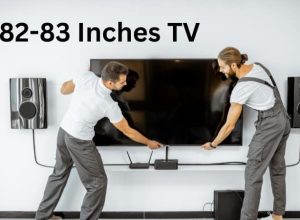


![Best Smart TVs Under $200 10 Best TVs Under $200 in 2022 [Smart, 4K, Top Rated]](https://eagletvmounting.com/wp-content/uploads/elementor/thumbs/Best-Smart-TVs-Under-200-1-pxsvk5gy9n9zpv0lrzhk644n1gvwdxv32ixo8gyqoo.jpg)
